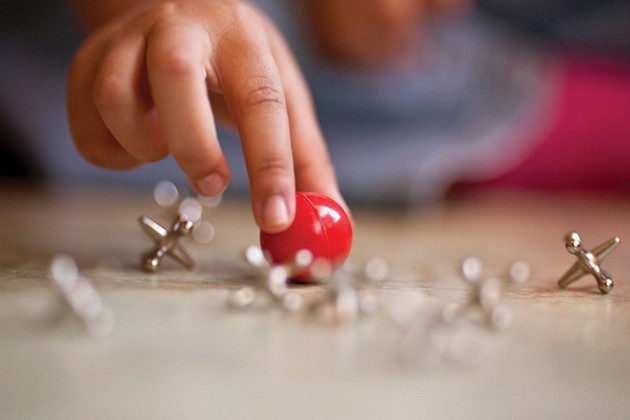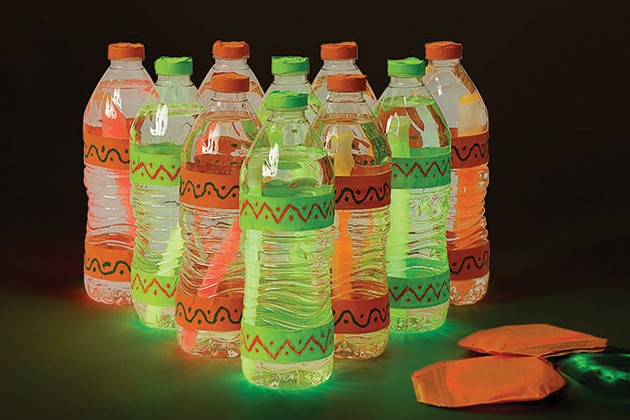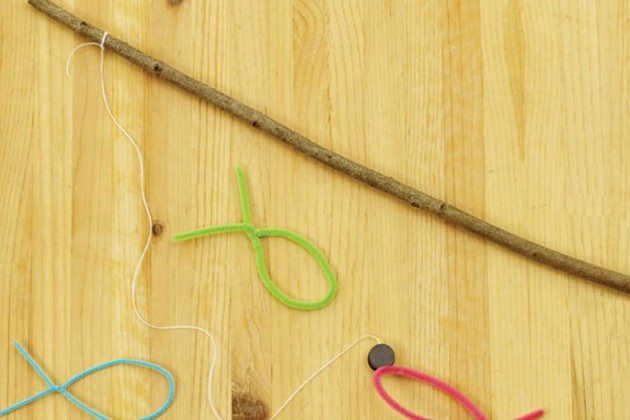7 Fun and Old-School Games for Families
By: Joanne Van Zuidarn
Have a go at these diversions when you’re stuck indoors, on family game night or just for fun whenever you have some downtime.
1. Jacks
Best for: Building nimble fingers and quick reactions
Number of players: 1 or more
Where to play: A table, or a floor without carpeting
What you need: A small ball and a set of jacks (10 altogether)
How to play: Player 1 scatters the jacks. That player then tosses the ball into the air, grabs 1 jack, lets the ball bounce and catches it with the same hand that tossed it initially. (All players must commit to using one hand to scoop the jacks, toss the ball and catch it.) If Player 1 successfully grabs a jack and captures the ball without missing, they go again, in each round scooping up an extra jack in a similar manner. The action continues until Player 1 drops the ball, drops a jack or accidentally touches another jack on the floor or table. Then Player 2 takes a turn and continues playing until they miss.
Game is over when: One player scoops up all 10 jacks and the ball, without missing.
Variation: Try “over-the-fence” for skill building: A player places their nondominant hand flat on the floor. After they capture the jacks, the player transfers them to the other hand, and catches the ball without blundering.
2. Marbles
Best for: Patient kids with great hand-eye coordination (or anyone who wants to fine-tune it)
Number of players: At least 2, but solo play is great for practice
Where to play: On the floor on a felt mat, vinyl tablecloth or low-pile carpet
What you need: 13 marbles in a variety of sizes and colors, plus one “shooter” (a larger marble used to knock out other marbles)
How to play: Mark off a circle at least 5 feet wide on the playing surface. Place 13 marbles inside the ring in a cross shape, spaced 3 inches apart. Using the shooter marble, the first player takes aim from outside the ring and tries to knock a single marble out of the ring, while keeping the shooter marble in the circle. That player continues until they miss or knocks both the shooter and a marble out of the ring, in which case the player keeps the marble. The game continues with the next player.
Game is over when: Players knock all marbles out of the circle.
Variation: Try the “knuckles down” technique to boost the skill set. Have your child curl their fingers into a fist and rest a marble in the crook of their index finger. With knuckles facing downward, have your child place the knuckle of their index finger on the ground and use the thumb to flick the marble.
3. Cascading Dominoes
Best for: Anyone, really—and for boosting cooperation, planning and teamwork
Number of players: 1 or many
Where to play: A large space, anywhere
What you need: A set, or multiple sets, of domino tiles and a large, flat surface
How to play: Map out a simple design and place domino tiles in a pattern the player devises. For straight lines, place tiles about ½ inch apart. To create a corner, dominoes should be closer in distance on the inside of the turn. To create a split, place two tiles side by side at the end of a straight line so they branch out in different directions. Flick, and watch the dominoes topple.
Game is over when: The structure collapses.
Variation: Take turns trying new formations in different patterns.
4. Pick-up Sticks
Best for: Dexterous players—or those who want to be
Where to play: Floor, table
Number of players: 1 or more
What you need: A set of pick-up sticks (toothpicks or cotton swabs can work well, too) and a large, flat surface
How to play: One player holds sticks vertically in one hand, a few inches from the play surface and then releases them. Player 1 picks up one stick at a time without disturbing any others. The round proceeds until that player misses, and the action continues with the second player.
Game is over when: Players collect all the sticks and points are tallied (one point for each stick).
Variation: Assign points based on the stick’s color if using traditional pick-up sticks. For instance, black is worth 25 points; red, 10; blue, 5; green, 2; and yellow, 1.
5. Thumb Wrestling
Best for: Boosting speed, strength and coordination
Number of players: 2 or more
Where to play: Any floor or table
How to play: Players face each other and extend their right hands into a handshake position but clasp their fingers and rest their thumbs on top of closed fists. Moving thumbs back and forth, players chant: “1, 2, 3, 4, I declare a thumb war! 5, 6, 7, 8, try to keep your thumb straight!”
Game is over when: One player pins the opposing player’s thumb for a count of 5 seconds.
Variation: Hold a tournament for 3 or more players.
6. House of Cards
Best for: Planners, patient kids and budding architects
Number of players: 1 or more
Where to play: A flat surface (a carpet or tablecloth is easiest for beginners)
What you need: A deck of cards, slightly worn
How to play: Lean two cards together to fashion a triangle in an inverted “V” shape. Form a second triangle next to the first. Balance one playing card on top of the two triangles. Form a triangle on top of that. This is the basic structure. Once the builder gets the hang of it, they can add more triangles at the base and more stories to the building.
Game is over when: The card house collapses.
Variations: Set a timer and build a multi-story structure in 10 minutes.
7. Tic-Tac-Toe
Best for: Strategic thinkers, building sportsmanship
Number of players: 2
Where to play: Sofa, chairs, table, carpet
What you need: Pencil, paper
How to play: Draw the classic nine-box pattern on a piece of paper. Player 1 chooses a square and places an X in it. Player 2 chooses a square and places an O in it. Players continue to alternate turns, strategically placing X’s and O’s or preventing the opponent from doing so.
Game is over when: One player stakes out three squares in one row—down, across or diagonally.
Variations: Game can be played with 16 squares, allowing participants to include a diamond pattern.









